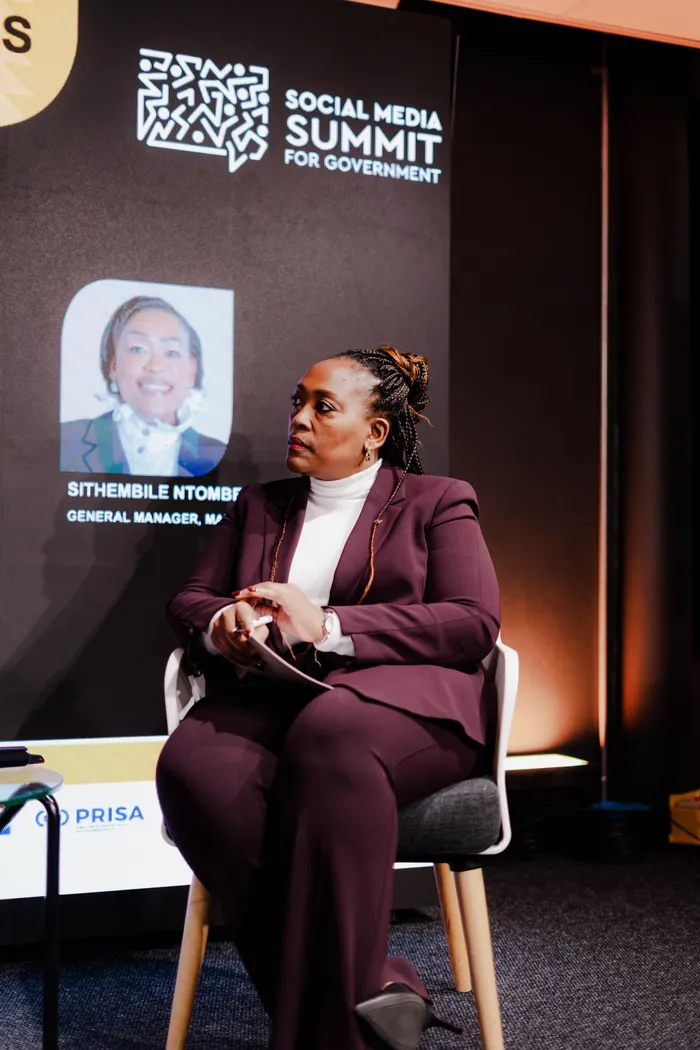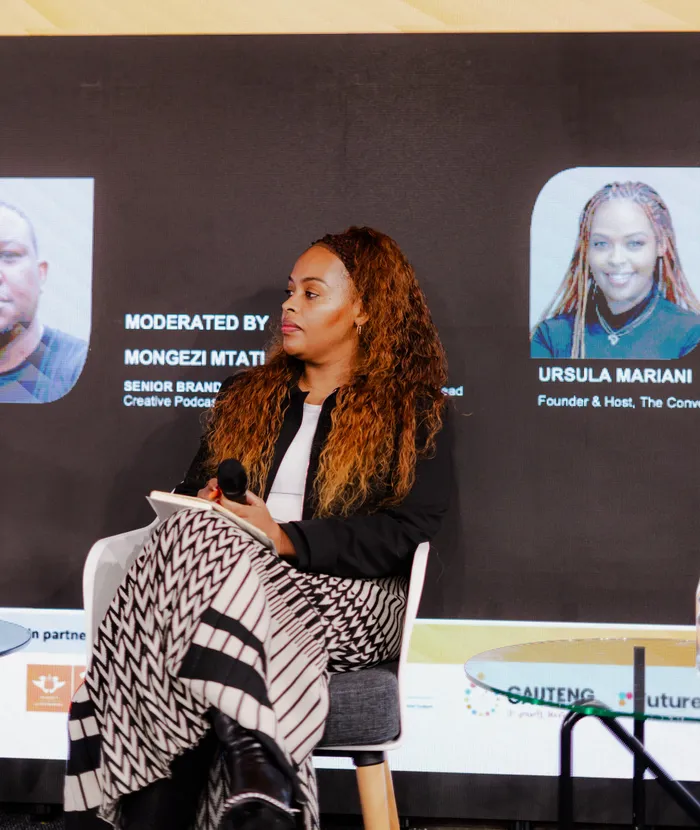How podcasts and partnerships can enhance government to communicate effectively

Sithembile Ntombela, the general manager for marketing at Brand South Africa, speaking at the Social Media Summit for Government at the University of Johannesburg.
Image: Supplied
Government communicators have been urged to partner with trusted voices in the podcasting space to make government messaging and communications more effective, accessible and relevant to younger audiences.
These were some of the recommendations given to communicators during the second day of the Social Media Summit for Government, held at the University of Johannesburg’s Business School in Auckland Park.
During a panel discussion on Podcasting and Government Communications, Sithembile Ntombela, the general manager for marketing at Brand South Africa, said it was important for government communicators and their principals to realise there was a vacuum and there was a trust barrier, urging communicators to foster meaningful collaborations.
“We need to use the trusted audience, and that is the business voice, civil society and ordinary South Africans. I think that as the public sector, we have to elevate, adopt and adapt to the changing norms.
“Look at the Covid era, we knew exactly the number of vaccines, infections and all those statistics, that should be the case for everything in South Africa.
“Podcasts can play a crucial role in building trust with the public sector; they can measure what we say and what we do,” she said.
Ntombela said it was important for the government to be like a commercial brand.
“Podcasts are the new ways of building brands… we need to coordinate, collaborate and co-create, and be that intertwining of strategies and deliverables,” she said.

Podcaster Urusula Mariani speaking at the Social Media Summit for Government at the University of Johannesburg.
Image: Supplied
Podcaster Ursula Mariani, the founder and host of The Conversation Capital, said it was important for the government to co-create with personalities who were kings and queens in the art of conversation, who understood their audience, had strong values and quality content which was packaged authentically.
She said in the podcast sphere, attention was the currency and the commodity, and that the number of views had a direct relationship with the amount of money podcasters made.
She warned that some people were willing to do anything for views, but warned that brands had to be careful who and what they aligned with, not only looking at the numbers for alignment with audiences.
“If you are a fan of Black Mirror, we are in an episode of Black Mirror. Everybody is starting a podcast, and everyone has a voice. There are people listening to this content, that's why they have the numbers, yet everyone will say they don’t like gossip, but when you look at the gossip podcast numbers that's where they are,” she said.
Ntombela said brand positioning, or vision, was important.
“We are married to quality conversation that matters, that brings impact to the ordinary South Africans, ours is not to look at the numbers, it is to look at the depth and the substance, that is important,” she said, adding that podcasts were tools to humanise brands.
Mariani said government brands needed to use skilled podcasters with communities to walk through complex conversations, saying co-creation and collaboration was the way to go.
“This is a skill and an art, if Frank from finance can do it, I guess let him do it… Do not downplay the skill that it takes to carry the conversation,” she said.
Ntombela said when partnering with podcasts, they had helped in challenging the norms, shifting the paradigm.
“Podcasts are a great tool for crisis communications. Like the US-SA saga. Because of podcasts, we had to be agile and respond to bridge the gap between the truth and the lies.
“It is important to be agile, be brilliant at the basics, co-create and collaboration, those are strategic relationships give you footprint and access,” she said.
IOL